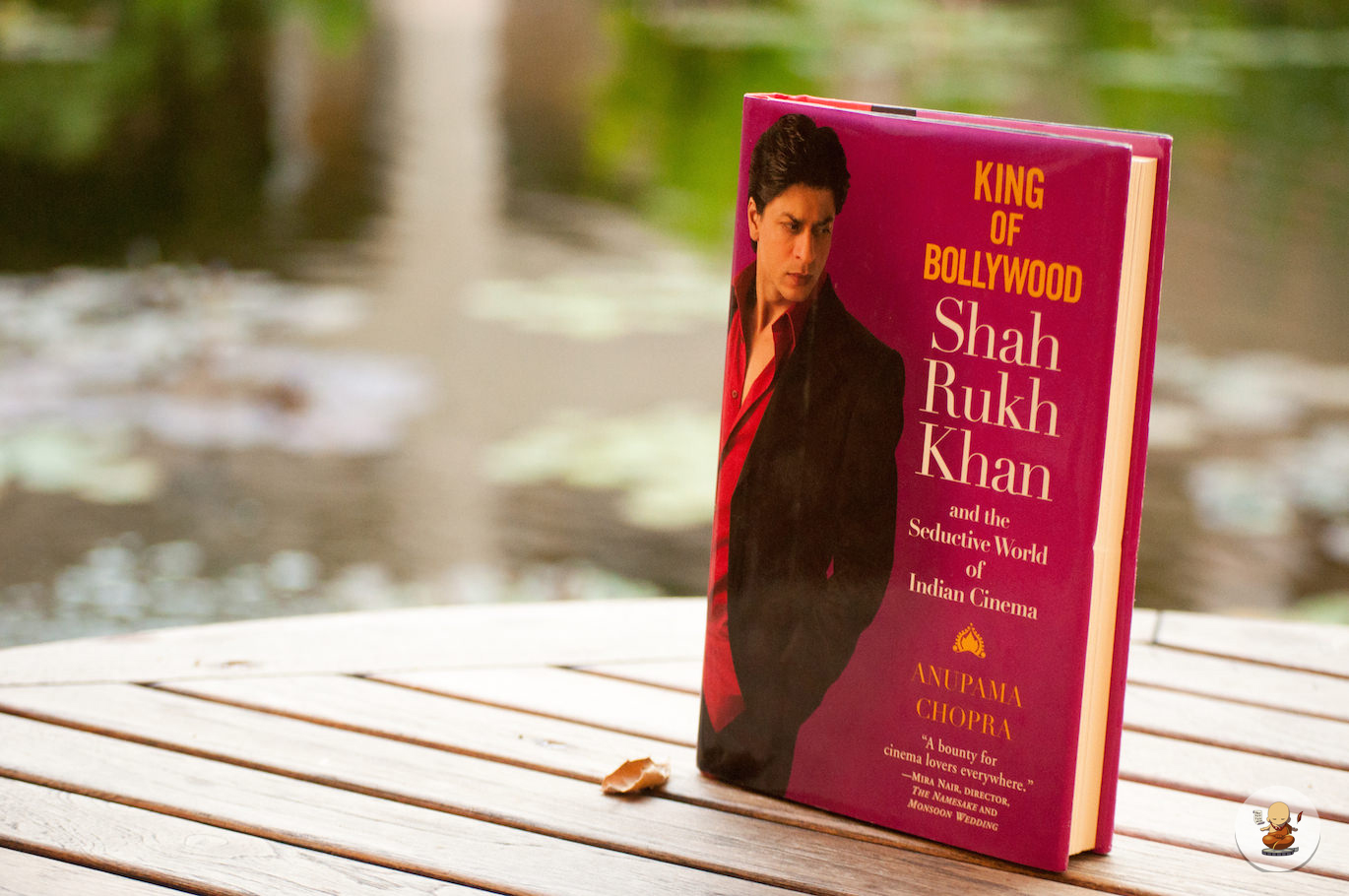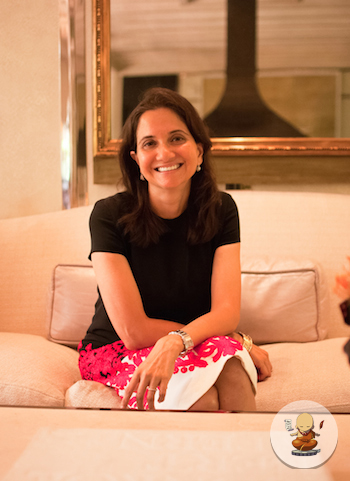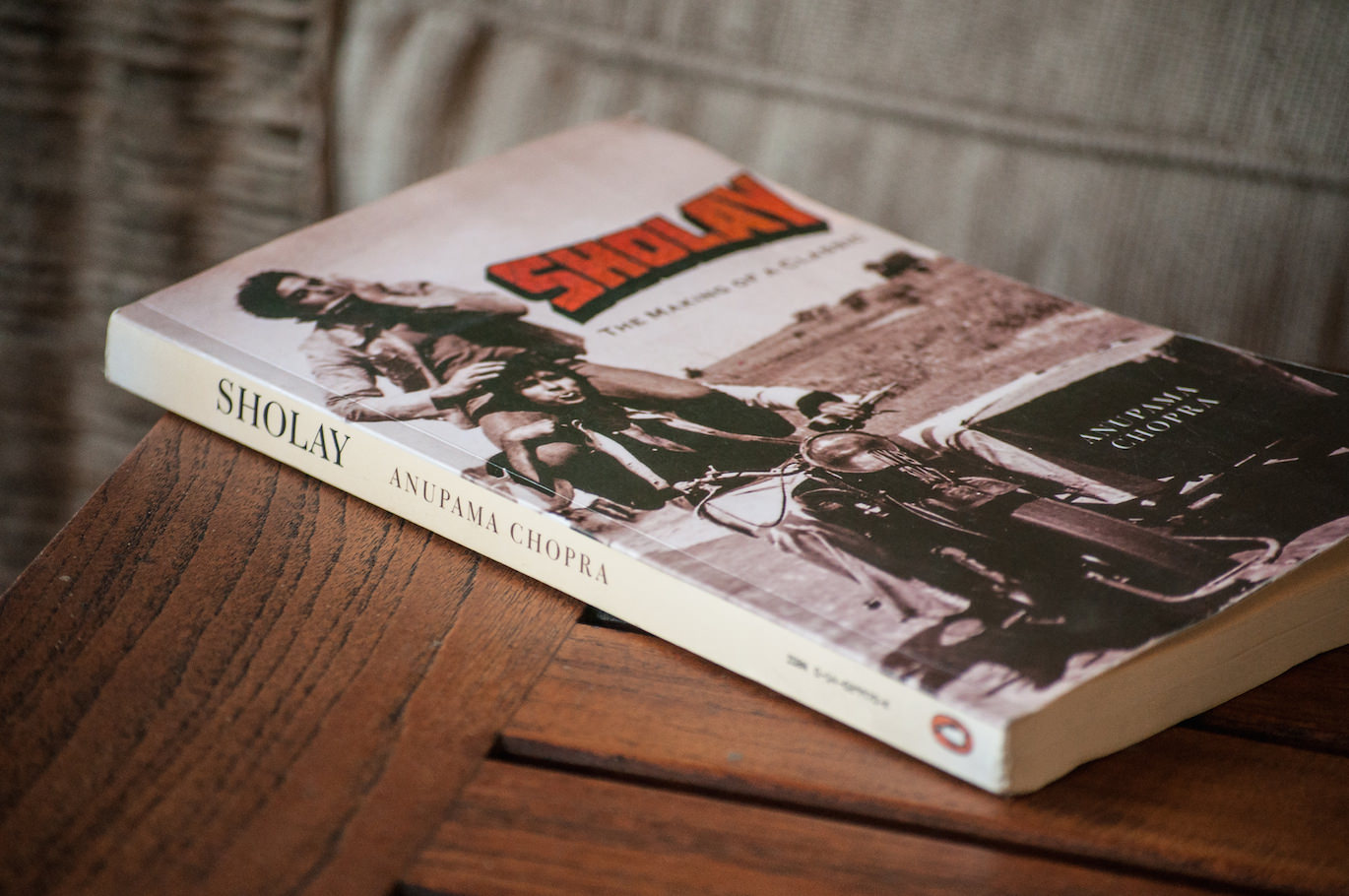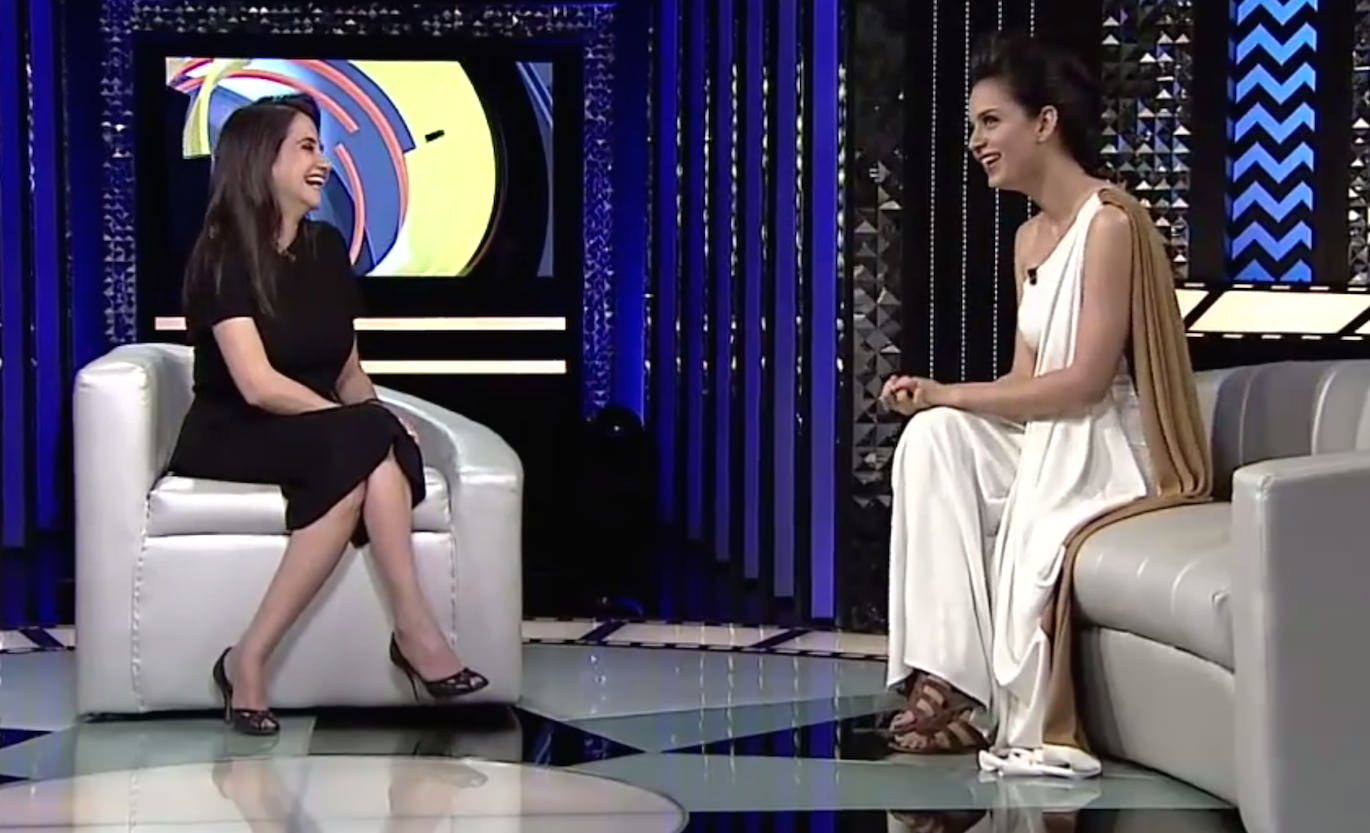
It was in the winter of ’07 at the Van Pelt library of the University of Pennsylvania, when I was introduced to Anupama Chopra’s work.
Her book ‘Sholay: The making of a classic’ was the reading assignment for our film class. At first, my plan was to skim through it quickly, write my two-page essay and move on. I ended up reading it cover-to-cover all night (neglecting other assignments) and then, related stories from it to my mother who, like many from her generation, adores the film. Eight years later, I had the privilege of meeting the fabulous author, and she was pleasantly surprised to learn that her book had made its way to international film studies.
Anupama Chopra wears the enviable invisible crown of ‘Miss Congeniality’. Her infectious, good-natured laugh; her quiet strength beneath the soft, husky voice; her genuine curiosity about who you might be, and above all, her true love for the cinematic medium, are all endearing traits of the brand that she has become.
She talked to us about her journey, standout memories and being married to Bollywood’s elite.

You come from a family of accomplished writers. At what point did you decide that you were going to do this exclusively for film, particularly for Hindi films? Was there a moment of truth?
Absolutely, there was. I did my undergraduate in English literature and at that point, I had no grand vision of cinema. My mother was writing for film, theater and radio, but I was from that generation where middle-class people didn’t really watch Hindi movies in theaters. We saw it on VHS or not at all. One of my teachers said that, “Figure out what you want to do. Meanwhile why don’t you go work at this magazine called Movie”. So I thought ‘why not’ and started to work there. And it was in those eight months at Movie magazine where I found my calling.
It was around ’89 and the industry was a complete chaotic circus. We would go from one set to another and interview whoever was available. It was so informal and amazingly friendly. It was not the most meticulous way of being a reporter, but I felt that this is what I want to do. It totally was my moment of truth. Then I decided that I want to do it with more rigor and structure -in the way that journalism was done until then. So I told my mom and she was of course, bewildered. It was shocking to them that I would even consider film journalism.
I went to do a masters at NorthWestern University because I wanted to learn the ropes and craft of journalism. Then I worked at Harper’s Bazaar in New York for a little while, but through it all, I knew that I wanted to go back and write about Hindi films. And so I went back.
Do you remember what you would consider your first big interview?
It wasn’t one interview, but it was a long trend story I did for Sunday magazine, which was my first job when I went back to India, when Vir Sanghvi was the editor. I did a really long story on the influence of the Mafia in Bollywood, in January. And that March was when the bomb blasts happened (1993). The editors of India Today saw that story and called me and said, “Come work for us”. So that was my first big write-up of some seven pages of this very dangerous dance that the film industry was doing.
How did you even find these people in the Mafia and go about interviewing them?
(Laughs heartily) Yeah, it was bizarre. I interviewed all these men who were then arrested three months later. And all these people were totally legit, at the time. They were legit producers! And then they were in jail for being part of the conspiracy. It was so bizarre. They would all sit across from me going, “Madam, do we look like smugglers?” And then a couple months later – in jail!
“I interviewed all these men who were then arrested three months later. It was so bizarre. They would all sit across from me going “Madam, do we look like smugglers?”
Tell us about your wonderfully researched book ‘Sholay: The Making of A Classic’.

Ramesh Sippy’s children -Rohan, Sheena and Sona wanted to commemorate the 25th anniversary of Sholay and they invited me to write this book. It happened to be one of the earliest works on mainstream and at that time, I didn’t know how to write books. So I thought, let me at least reference something, and there was nothing! There were no direct, ‘talking to viewers who love cinema’ kind of books at the time. So for my research, I interviewed everyone on the crew. Everyone who wasn’t dead (laughs). Down to the cook –to listen to what he made, what he cooked for the 300 people on set. Because that’s the only way you get color. Otherwise, how do you do it?
Is there any one celebrity interview in all these years that stands out in your memory?
In recent memory, the one that I did on The Front Row with Kangana. It was amazing because we honestly just talked without having a sense that this is something that’s very unusual or that it’s going to go viral.
At this point, Vidhu Vinod Chopra comes by, greets us very politely, gives her a goodbye hug and says he’s heading to Rodeo Drive. He makes sure she has transportation and they decide on a time and place to meet later. She sits down to continue…
Where were we…yes, Kangana. But over the years, for me, Shahrukh has been the most entertaining. He is outstanding. He just does all the work. He tells the best stories and he’s really invested in giving you a good time. So he’s been amazing to speak with, whenever I have. To be fair, they do this so much that after a while these blinkers come down. Once Mr. Bachchan was recounting for me how his day was; how he’s blogging until 2 a.m and he’s up at 6 to exercise. So I asked “When do you sleep?” and he said, “During interviews!” (laughs).
“Shahrukh has been the most entertaining. He is outstanding. He just does all the work. He tells the best stories and he’s really invested in giving you a good time.”
Was it easy when you approached Shahrukh Khan with the book idea?
No, no, oh God! Shahrukh Khan is the talking saga of my life. Because he is really hard to pin down. It took me a long time –about 4-5 months to convince him that we should do this. But once he’s on, then he’s fully invested. And he’s there and he tells great stories. He was great fun. Great fun!
It’s one thing to be a critic and a writer. And quite another to be a TV host where you have makeup and hair stylists. Do you enjoy that aspect of it?
No. Not at all. I love beautiful clothes and beautiful shoes, just like any woman, so I’m very happy to wear those. But makeup and hair is just intolerable! When i first started in television, on NDTV, I wore anything –my own clothes. Then you realize it’s a visual medium. And people take you more seriously if you look more presentable. I don’t mean that you have to wear Louis Vuitton. You just have to look professional. It’s important and it’s part of the process. I learned that. I didn’t know that. For me, the script was more important. That was what I slaved over. And I never bothered what I was wearing. And you know, the guys at NDTV would slob on all this make-up on me and I thought, “who cares?” But I looked horrific and my children were afraid when I would come home (laughs). So I’ve learned to be a little more invested now. But in real life – never! Just, who has the time?
You have become the gold standard for celebrity interviewing. You’re not prying into their personal lives. You’re talking about their work, life and philosophy.

That’s what I’m interested in! In finding out what has made you the artist that you are. And a lot of that is personal. Kangana talked about how she had this wild phase where she did a lot of things that she’s not so proud of. But those have all added up to being who she is today and that’s great. I do want to know the human being. It’s not just all about craft, this and that. But the end goal should be to give you an insight into how they create what they create. I’m interested in how do you negotiate fame or celebrity failure, which is so public. How do you conduct a successful marriage when everyone’s looking at you, figuring out whether you’re holding hands, not holding hands. But do I really care about who you’re seeing right now? I’m happy to gossip as much as anyone else, but it’s not what drives me. And I’m totally not interested in the fashion and the shoes that you wear. It doesn’t matter.
Your recent venture Film Companion has really high-quality and candid content.
Thank you. What I’m trying to do is to create a sense of movie conversations where you are just eavesdropping. In the way that Karan made me feel (in Koffee with Karan) –that I was eavesdropping on the coolest gang in high school. That’s what Karan did!
Being married to one of the most successful filmmakers in the industry, you’ve seen first hand the painstaking and grueling process of creating a film. How do you separate that from your job as a film critic?
It’s tough. Because I know how hard you have to work. Nobody sets out to make a bad film. No one says “I will make the worst film on the planet.” And the failure is so immediate and so public and so brutal. I’ve seen him fail, I’ve seen him succeed. I think, you need nerves of steel. You really do. You need an unshakeable faith in your own talent and in your dream. I get asked a lot “Well, you’ve done this for so long. Why won’t you direct a film now?” And I don’t have the courage or the talent. I definitely don’t have the talent but even if I did, it needs enormous courage to get out there.
Bombay Velvet didn’t work as a movie, but you could see the sweat that went into making that film. And it just breaks my heart to give it a bad review. Because I know that nobody on that team must’ve said, “Chal yaar, paise banate hain!”
I find myself thinking –something like Bombay Velvet, didn’t work as a movie, but you could see the sweat that went into making that film. And it just breaks my heart to give it a bad review. Because I know that nobody on that team must’ve said, “Chal yaar, paise banate hain!” That wasn’t the intent. It was pure. It didn’t work, which happens all the time. I give negative reviews on a weekly basis and I really feel bad. But at the same time, I can’t be dishonest. So as a viewer, if I am not satisfied, I have to say it. Honestly, as a film critic, the first thing you bring, is integrity. And if you’re not doing that, then don’t do it. Nobody’s asking you to do it. In today’s world, who needs another voice? So, I’m married to the mob, I know everybody personally, but I have to speak my truth, and people who value or at least respect the integrity that you’re bringing, will not take it personally.
Anupama Chopra won the 2000 National Film Award for Best Book on Cinema for her first book ‘Sholay: The Making of a Classic’. She has written several books on Indian cinema and has been a film critic for NDTV, India Today and Hindustan Times. She hosted ‘The Front Row With Anupama Chopra’ on Star World and has recently launched her web series ‘Film Companion’.















